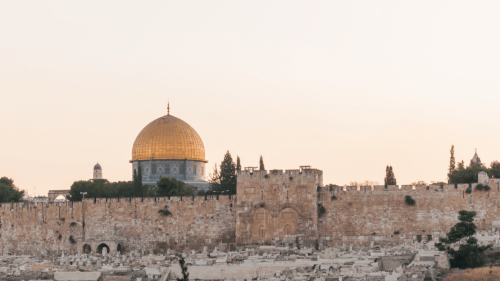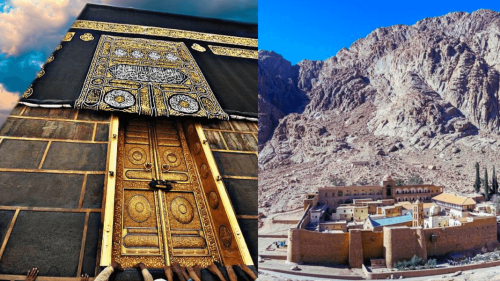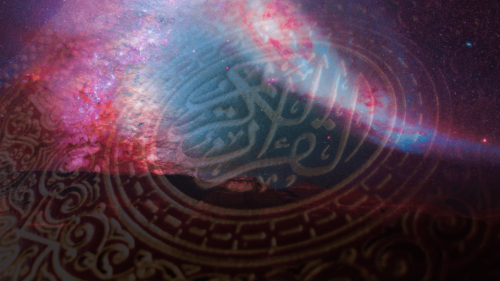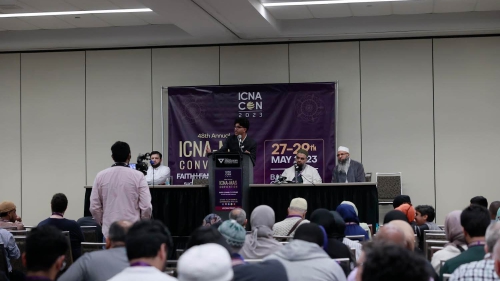If Spain welcomes back its Jews, will its Muslims be next?

A proposed law will fast-track naturalisation of Jews whose ancestors were expelled 500 years ago. Now the descendants of Muslims who were ousted are also seeking the right to return
Perched dramatically on a rocky mountain, the small city of Toledo overlooks a bend in the Tagus river. Within its maze of cobblestone streets are buildings that once housed mosques, churches and synagogues, hinting at the varied cultures that once called this medieval city home.
Earlier this month, about 50 miles away from Toledo, the Spanish government sought to strengthen its ties with one of these cultures, announcing plans to fast-track the naturalisation of Sephardic Jews, whose ancestors were expelled five centuries ago from Spain.
The bill, said the Spanish government, would "correct a historical wrong". The legislation has yet to be approved by parliament, but already consulates in Tel Aviv and Jerusalem said they have been flooded with requests for information. Up to 3.5 million people around the world are thought to have Sephardic - Hebrew for "Spanish" - Jewish ancestry.
Now the descendants of another group who figured prominently in Spain's colourful past - before also being expelled - say it's only fair that the same right of return be extended to them.
Shortly after banishing the country's Jewish population, Queen Isabella and King Ferdinand turned their attention to Spain's Muslims, forcing them to covert to Christianity or face expulsion. The Muslims who converted, known as Moriscos, often did so in name only, holding on tightly to their customs and traditions.
In the early 1600s - nearly 120 years after Jews in Spain were told to leave - the Moriscos were also expelled. An estimated 275,000 people were forcibly resettled, the majority of them heading to Morocco, some to Algeria and Tunisia.
A group representing Moriscos in Morocco recently sent a letter to Spain's King Juan Carlos asking the country to make the same conciliatory gesture to the descendants of Muslims. Speaking from Rabat, the president of L'Association pour la Mmoire des Andalous strongly criticised Spain's double standard in offering to naturalise the descendants of Jews ousted from Spain but not Muslims. The Spanish government "should grant the same rights to all those who were expelled", Najib Loubaris told news agency EFE. "Otherwise the decision is selective, not to mention racist."
The Spanish government's offer to Sephardic Jews was "very positive", said Loubaris, in that it showed an acknowledgment of "guilt for the expulsion that the Spanish state committed against its own citizens".
Loubaris estimated that 600 families in Morocco can trace their origins to Spain. Most no longer speak Castilian Spanish, he said, but their connection to Spain is evident in their music, architectural styles and gastronomy.
In Spain, the Junta Islamica reinforced the vivid links between the expelled Muslims and Spain. To this day, across the country there are families "who can demonstrate their lineages, who can show that their relatives were expelled hundreds of years ago," said Muhammad Escudero Uribe.
Whether it is citizenship for Muslims or Jewish descendants, he said, "the cause and historical background is the same. And for this we want this same right to be extended. From a legal standpoint, it's only just."
His organisation has spent years lobbying the Spanish government to naturalise the descendants of Muslims. In 2006, a left-wing party in the autonomous region of Andalusia proposed a bill that would recognise the rights of Muslims who were expelled. The bill never made it to a vote. "It doesn't seem that the government shares our position," lamented Escudero Uribe.
The push for citizenship rights is just one part of a larger campaign being waged to raise awareness of Islamic influence in Spain, said Antonio Manuel Rodrguez Ramos, a law professor at the University of Crdoba. "We're the only place in Europe that has estranged itself from its past," he said.
The right of return for those with Spanish Muslim ancestry would be "symbolic rather than practical," he said. While Sephardic Jews may be able to provide proof of their lineage through their surnames, their language or through certification from the federation of Jewish communities in Spain, setting similar criteria for the descendants of Spanish Muslims would be nearly impossible. "But the gesture would go a long way in repairing centuries of forgetting."
Since the Spanish government's announcement, columnists around the world have mused on what prompted Spain to reach out to Sephardic Jews. Michael Freund, writing in The Jerusalem Post, called the decision "decidedly ironic". He explained, "the expulsion happened in part because Spain wanted Jews' assets, and now they are welcoming Jews back for the same reason".
Others, such as the Portuguese lawmaker who drafted a law similar to Spain's that will eventually allow Jews expelled from Portugal five centuries ago to return, insisted that the experiences of Muslims and Jews on the peninsula couldn't be compared. "Persecution of Jews was just that, while what happened with the Arabs was part of a conflict," Jos Ribeiro e Castro told the Jewish Telegraphic Agency.
Antonio Manuel Rodrguez Ramos suggested another reason. The hundreds of thousands of Muslims who left in the early 1600s couldn't possibly have been the only Muslim descendants in the country, he insisted. "The majority of these people didn't leave when they were expelled," he argued. "They stayed and they created a culture that can be described as most authentic and most Hispanic."
Extending the right of return to the descendants of Spanish Muslims would shine a spotlight on a truth that most in Spain would like to ignore, he argued. "The danger is that we will have to recognise that the majority of the Spanish population is of Muslim descent," said Rodrguez Ramos. "It's an effort to hide our history, to hide our memory."
Muslim Influence in modern-day Spain
- The Moors introduced a variety of new crops to the Iberian peninsula including oranges, lemons, cotton and sugarcane. They also introduced rice, a key ingredient in paella, one of Spain's most well-known dishes.
- Arabic had a profound influence on Spanish, with linguists arguing that thousands of words of Arabic origin are used today in Spain. Examples include alcalde (mayor) and alfombra (carpet).
- The architectural influence of the Moors remains the most recognisable legacies in modern-day Spain, from the Mezquita de Crdoba to the Alhambra palace in Granada. Moorish architecture is defined by slender columns, horseshoe arches, serene courtyards and geometric patterns.
- The tangled, narrow street plans seen in many southern Spanish towns date back to Moorish times.
- The guitar, along with flamenco's signature cry of ol, are believed to be derived from early versions of the instruments brought by the Muslims to Spain.
====
This article was amended on 25 February 2014 to correct a misspelling of the word Granada in the picture caption.
*****
Source: The Guardian
Topics: Jews, Muslims Values: Humility
Views: 5784
Related Suggestions
immigrants thereby upsetting a demographic balance.
Muslims would probably like to migrate from poorest of Muslim world claiming
Spanish ancestors.
Jews wil be welcome because they have more in common with Spanish history,
culture etc and cultural commonality
they are sincere accepting back the Jews expelled 500 years back and
not giving equal treatment to the Muslims expelled is a kind of
double standard and racist content.They should treat both the Jews
and the Muslims equally as Muslims left legacies which remains in
the modern Spain.Typical of such legacies left is the Architectural
influence of the Moors seen from Cordoba to Alhambra Palace in
Granada a serene courtyard and geometric patterns for every one to
see making Spanish proud.From where did this architecture come
obviously from the Muslims so they should be welcome in this modern
Multi-cultural European Society.As they say all animals are equal
unless you wanted to say some are more equal than others then we
should keep quiet.

















